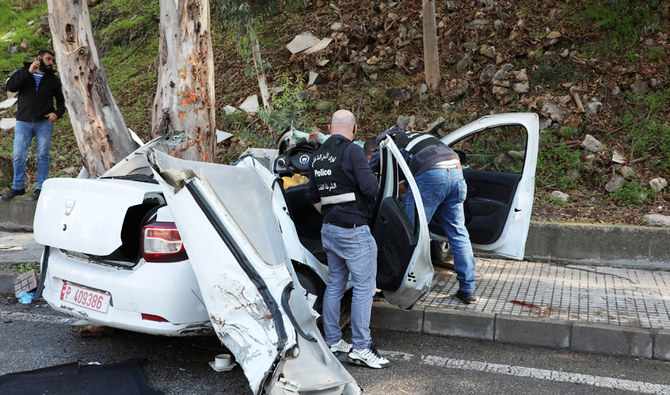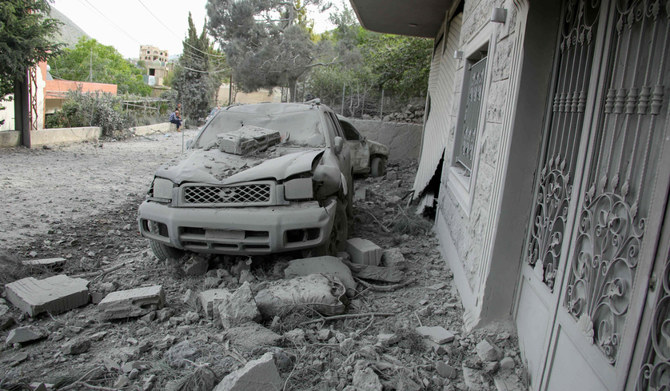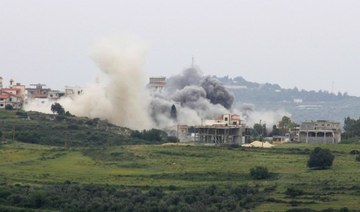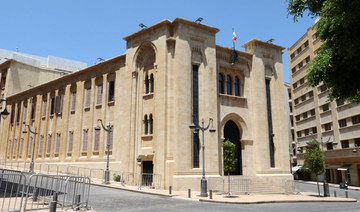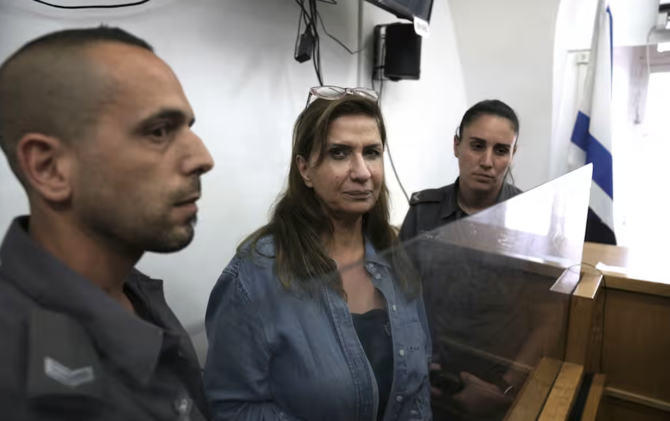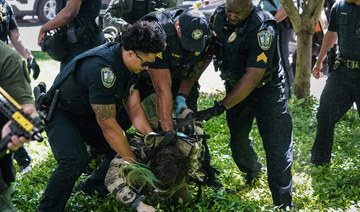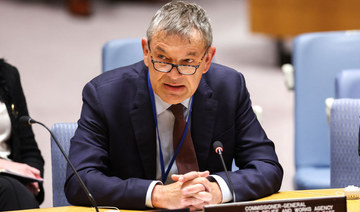BEIRUT: The escape of 69 detainees from the Baabda’s Justice Palace’s detention center on Saturday has highlighted security and humanitarian concerns about the prison system, with five prisoners killed during the break-out.
An official source told Arab News that “the detainees escaped in the early hours of the morning, when a prison guard opened the door for one of the detainees to throw away the trash, as he always does. However, the detainees charged and attacked the guards, and escaped from the Justice Palace.
“Six of them took over a taxi from its owner, forcing him to get out of the car after hitting him, before quickly escaping,” the source said.
“The six detainees were observed by security cameras the moment they took over the car, however, they crashed into a tree near the constitutional council a few kilometers away, which led to the death of five of them. The severely injured sixth escapee was transported to a hospital.”
The security source said: “The detention center where the incident took place is located inside the Baabda Justice Palace. It is dedicated to arresting people, in preparation for their trial and transfer to prisons. There were 150 people detained in that center the moment the incident occurred, and none of them are accused of a terrorist crime. They are accused of crimes ranging from theft, fraud and murder. Sixty-nine detainees escaped whereas the rest refused to flee and stayed at the detention center.”
The International Security Forces’ (ISF) leadership said that the use of checkpoints and patrols led to the recapture of 16 of the escapees, and four escapees handed themselves in.
Municipalities in towns near Baabda warned citizens not to open their doors and to report any suspected escapee. Security patrols were also deployed on the roads leading to the south and Bekaa.
HIGHLIGHT
Last April, the ISF thwarted an escape attempt from the Zahle prison, after guards discovered a 1.5-meter-deep tunnel that stretched from the prison’s toilet to outside of the jail.
From the Justice Palace in Baabda, one woman said that she handed over her son to the security forces after he returned home in the morning. She told Arab News: “I do not want him to get killed by a patrol chasing the escapees. I want him to get a fair trial for a theft crime that he has been charged with. He has been arrested for six months and courts are in recess due to the coronavirus. No one wants to receive me to present my son’s case. This is unacceptable.”
The detention center is comprised of three rooms designed to accommodate 30 people at the most, however the number of detainees often reaches 150, leading to inhumane conditions.
Lawyer Rabih Qais, program manager of the Lebanese Foundation for Permanent Civil Peace (LFPCP), told Arab News: “Prisons in Lebanon are a ticking time bomb due to overcrowding and because they are providing minimal cleanliness, food and water.”
He added: “Detention centers in justice palaces and police stations where detainees are supposed to spend 24 hours only before being transferred to trial, have mostly turned into prisons. They do not meet any human rights criteria, and it can be said that their condition is more than a disaster.”
He said: “As a result of this and as a result of the longer periods of detention that are a violation of the law, a social relationship is established between prisoners and guards who talk and call each other by their names. What happened today might be the result of a wrong moment, but no matter the reason, it is neither the guard nor the prisoner’s fault. Things are very complicated.
“There are many authorities that are responsible for prison management, from the Supreme Judicial Council and the Justice Ministry to the Interior Ministry and the ISF leadership, while one institution specialized in managing prisons and rehabilitating prisoners is required, under the protection of the ISF. This project is more than five years old and has not been achieved because the Justice Ministry is not capable of taking this responsibility, and the security forces’ leadership does not want to give up on managing prisons.”
Last April, the ISF thwarted an escape attempt from the Zahle prison, after guards discovered a 1.5-meter-deep tunnel that stretched from the prison’s toilet to outside of the jail.





